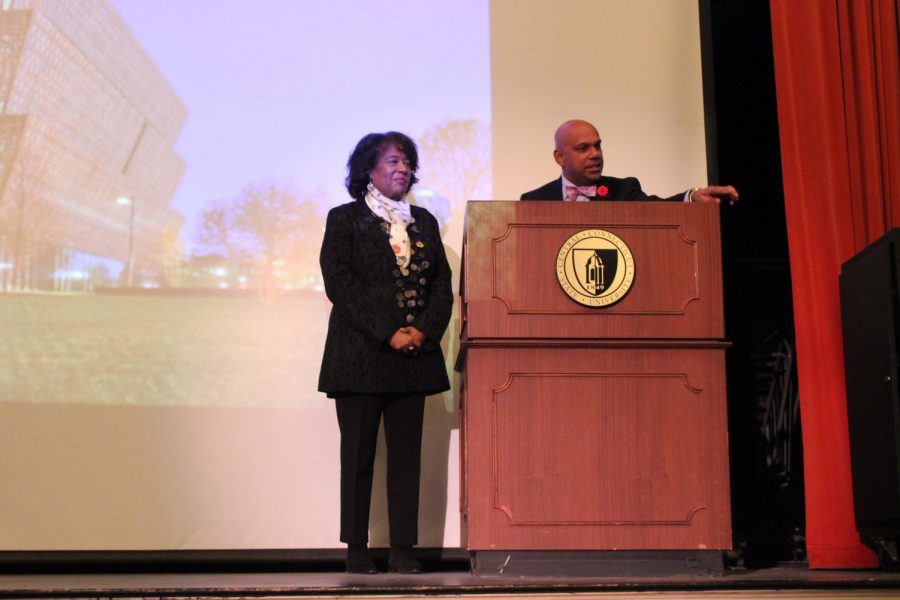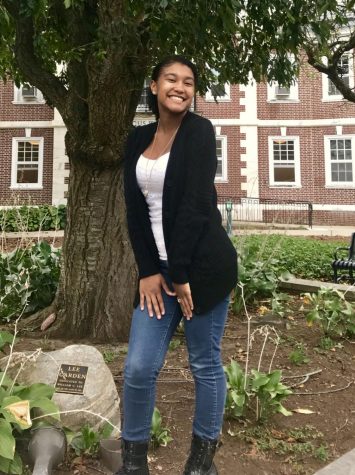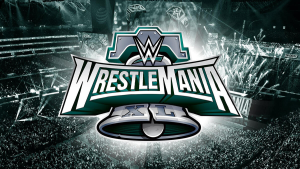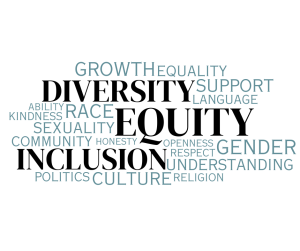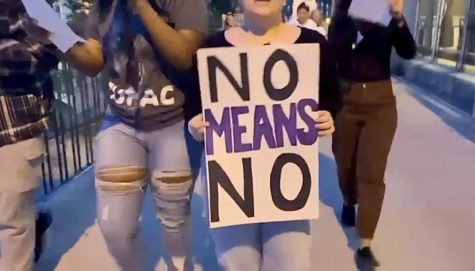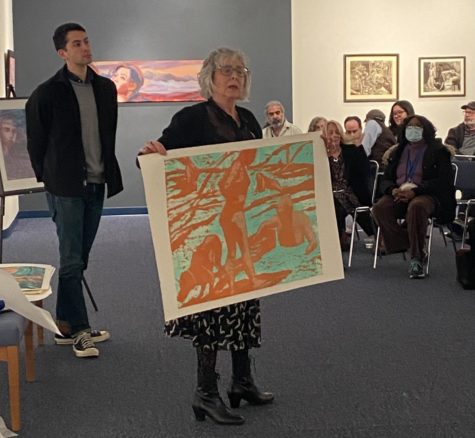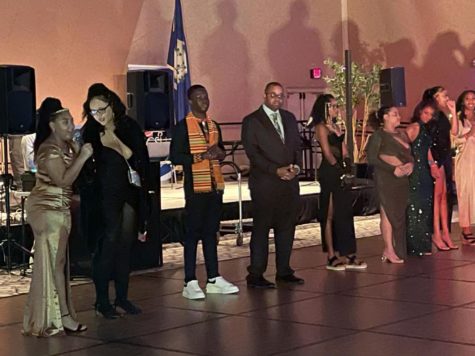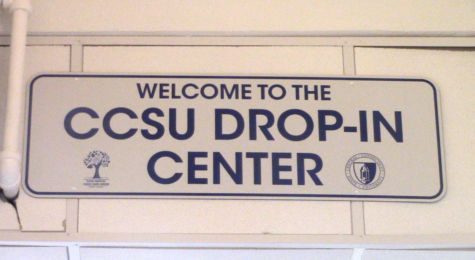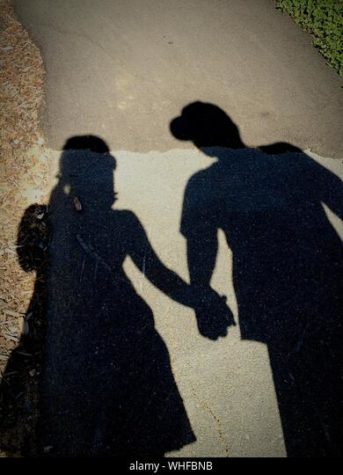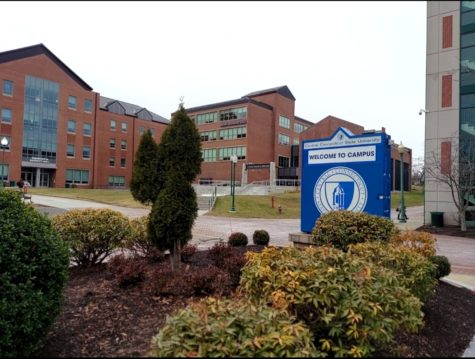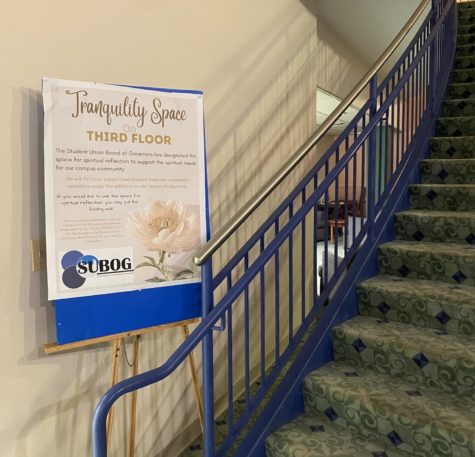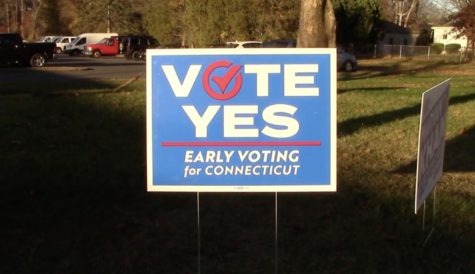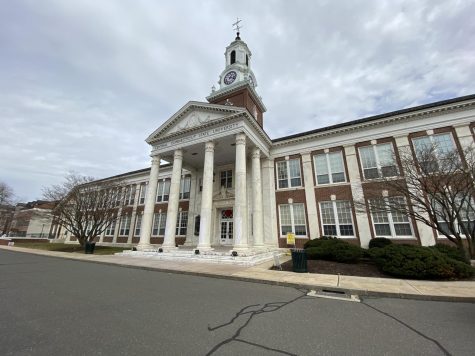Smithsonian Director Spotlights Black History, Culture At CCSU Talk
February 18, 2019
Highlighting the impact of African-American history and culture on American society was the theme at last week’s annual Central Connecticut Civil Rights Lecture Series, where over a hundred people packed Torp Theater to listen to guest Beverly Morgan-Welch.
“I was amazed by CCSU’s commitment to preserve and expand the Civil Rights Lecture Series into an academic curriculum where students can have a firsthand knowledge of the movement in the 1960’s,” Morgan-Welch said.
Morgan-Welch is the associate director of external affairs for the National Museum of African-American History and Culture at the Smithsonian Institution. Her lecture was part of a project created by CCSU Professor Stephen Balkaran. Since 2010, Balkaran has invited civil rights scholars to CCSU to speak on the civil rights history in the U.S.
“The purpose of this project is to present an education tool for students, educators or any other members of Connecticut public to view, study and do scholarly research on the civil rights experiences that shaped our history,” Balkaran stated.
For the Spring 2019 semester, Balkaran invited Morgan-Welch to share the influence of the “African-American experience, which is often lost and negated in American history.”
Throughout her lecture, Morgan-Welch spoke on the construction of the museum, the galleries and artifacts on display and her own personal experiences.
Some of the museum’s biggest displays look at important aspects of African-American history. This includes one of the Tuskegee Airmen planes, which showcases military advancements made by black people, and remnants of slave ships and freedmen’s bureau records, demonstrating the movement of slavery and freedom.
The museum collection holds almost 40,000 objects, including belongings of Harriet Tubman, Chuck Berry’s car and an original copy of the novel “Twelve Years a Slave.”
CCSU Professor Leah Glaser had visited the museum once before and enjoyed the experience, calling it “a blockbuster museum.”
“You don’t just have to have a personal connection to enjoy it,” Glaser explained. “My half-Jewish children will have that experience for the rest of their lives and it will stay with them forever.”
Morgan-Welch also discussed her own personal experiences of being African-American and how important learning her community’s history was to her.
Having grown up in Colchester, there was not much around but the town itself held a lot of history.
“When you look into your history, as I did, you find out that some people in your town used to be enslaved to people whose families you know and names still exist,” Morgan-Welch said. “That’s a difficult pill to swallow.”
Morgan-Welch emphasized the importance of learning the history of one’s own community and building upon that history positively.
“If you don’t see a Native American, an Asian-American, an African-American or a woman in the history, then you want to ask, ‘Who did the work, who else is missing from this picture?’ because that’s not the whole story,” Morgan-Welch said.
“You need to know where you’re from, you need to know the culture of your community and understand its history so you can lift it up and see how you fit into that story, wherever you are from,” Morgan-Welch continued.
